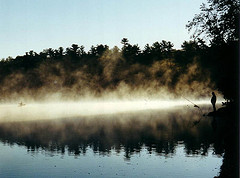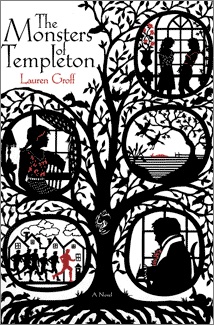As I write, I find that the more I focus my attention on the quiet moments produced by a life of reflection the happier I am, the more I feel at peace. This is not to imply that I am passive. As ever, I am a passionate soul who desires trial by fire over all else. I do not seek comfort or ease, but I must also acknowledge that life is long and complicated.
If I turn my eye towards this sort of writing, I enter a new world of impressions cast from the past onto the present, of the future implied in the current moment. I write in a universal sense that we can all see, that we can all experience and understand what is felt by a sentence.
Combining the means and the terms with the stark images of places, people, and events that we have deliberately forgotten, is one method for creating a deep sense of emotion. One must layer sense impressions on top of the metaphysical intuition. One must not only see the ruined castle but all who lived within it and all those who dwell about its decay. One must see the loves of life that pranced within those walls and the deadly tears wept at the malicious contempt of others.
One must not always speak in such a silly voice. Sorry.
When I write like that, I feel almost as if I am lighter than the words and yet heavier than the whole. I sink down to the bottom of the pool, open my eyes in the silent darkness, and see the blue light above and the shadows of those who are swimming just out of focus. I sense there, as the oxygen grows thin, a possibility of never coming to the surface, of stopping time at this single moment and walking around it, through it, until I come back to the firm realization that I require air to live and push off reluctantly.
Perhaps he never properly recovered from the pain that his imagination revealed to him. To see clearly, the delight, the celestial vision, of pure, unedited Art, would drive a person mad, but only because they had no hope of reproducing such perfection. I believe that such visions, above all else, are what drives artists insane (that and cheap liquor). The artist who does not accept their human failings is doomed to pursue an endless course of fruitless labor, culminating in their eventual destruction at the hands of their own mind.
I am slowly coming out of just such a night walk, but unlike some others, I see my imperfections and I accept them. I do not look up to the stars and wonder why it is that I cannot match their beauty with my skill, for their beauty only has meaning in their unassailable position as stars in the dark fabric of my memory. I accept their place and I accept my own inability to render them accurately, but this does not diminish my love of their beauty. My tears are still wet and I am still enthralled with the possibility that I might try to grapple with them.
If I pull back because I am afraid of losing my grip on clarity, I stem my expression, cause it to wither. The result is a dying vine that bears no fruit save for a few hard, bitter berries not worth harvesting. The artist must drive forward regardless of certain failure.
There are times when I would rather go off and be alone, to be like Thoreau at Walden. Of course, Thoreau wasn’t alone at Walden. He trucked down the road for regular meals and conversation. And when I remember this, the image of Thoreau is spoiled. It makes no sense to continue dreaming about something that wasn’t done, but some artists cling to this possibility and pursue it at the peril of their own destruction.

 I was just browsing the NYTimes and I came across a little ad for
I was just browsing the NYTimes and I came across a little ad for